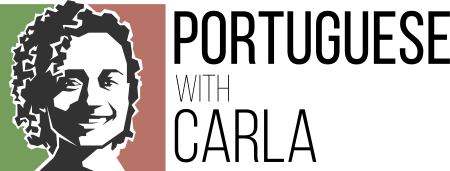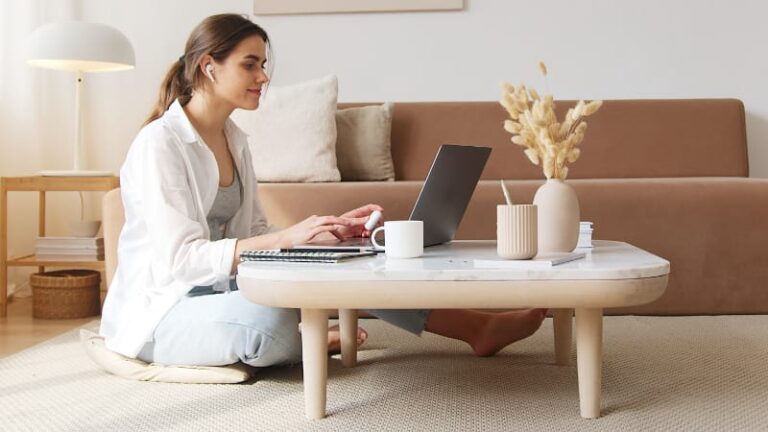The 17 Best European Portuguese Phrases to Know if You’re Visiting Portugal in 2023
Whether you’re moving to Portugal in 2023 or just visiting the country, learning useful phrases has many advantages. You don’t need to sound like a native Portuguese speaker, but you should be able to maintain short conversations.
These are the essential Portuguese phrases for tourists to learn:
- Bom dia/ Boa tarde/ Boa noite/ Olá/ Adeus
- Muito prazer!
- O meu nome é…
- Tudo bem?/Como está?/Como vai?
- Sim; não
- Desculpe
- Onde é ….?
- Desculpe. Onde é a casa de banho?
- O que recomenda?
- O que é tradicional?
- Quanto custa?
- Queria um …
- Por favor/Se faz favor; Obrigado(a)
- Aceita cartão?
- Não percebi./Não entendi
- Mais devagar, por favor.
- Fala inglês?
You might have visited a Portuguese-speaking country or been in contact with the Portuguese language before. After all, it is the 7th most spoken language in the world.
When in Portugal, you’ll notice most natives speak English pretty well. Nevertheless, rest assured your efforts in learning a few basics will not go unnoticed.
Familiarizing yourself with the local language is the first step to enjoying your stay all the more. So let’s take a closer look at each expression.
Basic Portuguese Phrases For Travelers

Check out the most common Portuguese phrases for travel, their English equivalents, and when to use them. You can find even more expressions with the correct pronunciation in our video: 100 Common Expressions in European Portuguese.
Greetings
Most language learning methods start with greetings, usually simple phrases or words. Plus, they often associate with different periods of the day and are easier to remember.
Bom dia/ Boa tarde/ Boa noite
In European Portuguese, you’ll use “Bom dia” (Good morning) earlier in the day. Then, after lunch, you’ll switch to “Boa tarde” (Good afternoon). Finally, resort to “Boa noite” (Good night) in the evening/nighttime.
Olá and Adeus
“Olá” is a simple greeting you can use when you first arrive somewhere or if you want to greet someone. It’s the Portuguese word for “Hello,” so it’s not related to a specific time of day, and it’s one you’ll repeat time and time again.
“Adeus” means “Goodbye,” and you use it the same way as the English word. If you expect to see the person later in the day, say: “Até logo!”
Introductions
Next up, we’re tackling introductions. Hospitality is common practice for the Portuguese people. Hence, you will surely make lots of new acquaintances during your trip.
Muito prazer
Whenever you meet someone new, it’s polite to say: “Muito prazer.” This phrase is short for “Prazer em conhecê-lo.” which means “Pleased to meet you.” You might also hear a native use: “Muito gosto.”
O meu nome é…
Like the English “My name is…”, “O meu nome é…” followed by your first name is a simple way to introduce yourself. It also answers the question “Como se chama?”
Tudo bem?/Como está?/Como vai?
These are different ways of asking: “How are you?“. You can apply the first one universally, while the other two bear a more formal tone suited for introductions or people you don’t know so well.
The expression “Tudo bem”
Questions and Requests
Sim; não
“Sim” means “Yes,” and “Não” means “No.” Nasal vowel sounds are standard in Portuguese, but it can be tricky for foreigners to learn to pronounce them. Here’s a trick: try to repeat the word “Sound” without the first and last letters (“oun”).
Desculpe
According to the situation, “Desculpe” can mean “Sorry” or “Excuse me.” You can use it to say you’re sorry about something you’ve done inadvertently. But, like in English, it is also a polite way to draw someone’s attention.
Onde é ….?
“Onde é…?” or “Onde fica…?”
Desculpe. Onde é a casa de banho?
If you’re at a restaurant and need to use the bathroom, you might say: “Desculpe. Onde é a casa de banho?” which translates to “Excuse me. Where is the bathroom?”
O que recomenda?
Let’s stick to the restaurant example for a while longer. If you’re unsure what to order and want to ask for a recommendation, you can say: “O que recomenda?” (What do you recommend?).
O que é tradicional?
Besides learning a new language of the place you’re visiting, you probably also enjoy getting to know its culture. Asking “O que é tradicional?” which in English means “What’s traditional?” can help you discover everything from tasty dishes to cultural souvenirs.
Quanto custa?
“Quanto custa?” translates to “How much does it cost?”. You can also say “Quanto é?”
Queria um …
You’ll say: “Queria um…” or “I’d like a…” followed by the name of whatever you’re ordering. It applies to all sorts of situations. You can ask for a meal, a room, or a rental car. The possibilities are endless.
Por favor/Se faz favor e Obrigado(a)
“Por favor” and “Se faz favor” are two ways of saying “Please.” You can use them the same way as you would in English. Picking up on the restaurant illustration from before, when asking for the bill, you would say: “Queria a conta, por favor.”
“Obrigado” or “Obrigada” is one of the most basic Portuguese words and literally translates to the English word “Obliged.” It is how you say “Thank you” in Portuguese and incites the answer “De nada.”
Portuguese is a gendered language. So usually, you’ll hear men say “Obrigado” and women say “Obrigada.” Regardless, you can use either one as they are often mixed.
Find more details about saying the feminine or masculine form of the word in the video: How to say thank you in Portuguese – Obrigado or Obrigada?
Aceita cartão?
After asking for the bill, you might want to ensure the establishment accepts payments by card. For that, you’ll use “Aceita cartão?” which will get you a “Sim” or “Não” answer.
When in Doubt
Portuguese natives often speak rapidly. If you’re not fluent, these common Portuguese phrases will help you communicate better with others.
Não percebi. / Não entendi
When you don’t understand what a native speaker is saying, tell them “Não percebi/entendi.” or “Desculpe. Não percebi/entendi.”
Mais devagar, por favor.
Use “Mais devagar, por favor.” which means “Slower, please.” if the person you’re speaking with is doing it much too fast for you to follow along. It is among the essential phrases for tourists to learn.
Fala inglês?
You can always resort to your mother tongue if you’re in a rush or simply can’t understand what’s being said. Most native speakers know English and will be happy to oblige.
That makes “Fala Inglês?” (Do you speak English?) one of the most practical and basic Portuguese phrases you can learn. If you’re feeling brave, add “Eu não falo português.”
Summing Up On European Portuguese Phrases to Learn
These are the best basic Portuguese phrases to learn before visiting Portugal. Tap into authentic videos, like How to Reply in Common Situations – European Portuguese, to learn Portuguese expressions for everyday use. Try these suggestions, and let us know your thoughts in the comment section below!
Portuguese With Carla offers a 7-day free trial to our interactive European Portuguese course: “The Journey.” Its first section, the “Pre-Journey,” teaches everything you need to know for your first trip to Portugal.
You won’t feel forced to memorize tiresome grammar rules. Instead, you’ll discover how to speak Portuguese naturally and with confidence. Click the link to join us!









Muito obrigado Carla,
I just started to learn Portuguese and every little helps!
Portugal is such a beautiful country and almost all the people speak English, so it’s
really hard to practice speaking Portuguese. So these small phrases can sometimes get them to help you.
Tchau
Dave
Olá Dave!
Thank you very much for your kind comment. We are delighted to know you enjoyed this article.
Wishing you all the best with your Portuguese learning journey!
Tchau
Catarina